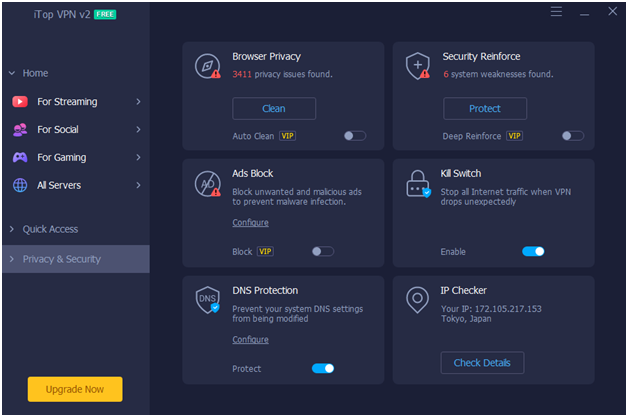A virtual private network (VPN) is one of the most popular ways to access files. Also, allow permission for resources from a remote location and over the internet via an encrypted connection. Moreover, VPN is allowing employees to access resources through a public network. You can easily connect to windows remotely. A free VPN can allow you to your home network in order to access your computer’s files and peripherals. This will help you to use other computers on the network.
This guide will teach facts that you should know about the VPN. Let’s dive into the details.
Facts that you should know about the VPN:
1. VPNs are beneficial to your security and privacy. Open wireless networks put consumers in danger since attackers on the same network can sniff web data. Potentially hijack accounts on websites that don’t employ the HTTPS security standard. Furthermore, some Wi-Fi network providers purposefully inject advertising into web traffic, which may result in invasive tracking.
2. Governments in some parts of the world track users who visit specific websites in order to determine their political connections. It also identifies dissidents’ actions that put free speech and human rights at risk. The best free VPN for Windows is typically used to extend a company’s private network.
3. All the traffic of your website can be securely routed through a server. It is available somewhere else in the world while using a VPN connection. This shields your computer from local tracking and hacking efforts. You can also hide your true IP address from the websites and services you visit.
4. VPNs aren’t all made equal. There are a variety of VPN systems available, each with varying levels of encryption. It is not as secure as other protocols that use SSL/TLS (Secure Sockets Layer/Transport Layer Security).
5. Additionally, with TLS-based VPNs, the encryption algorithm and key length utilized are critical. While OpenVPN supports a wide range of ciphers, key exchange protocols, and hashing algorithms. VPN service providers most commonly use AES encryption with RSA key exchange and SHA signatures for OpenVPN connections.

6. It is important to remember that VPNs add overhead. This will offer you tighter encryption, the slower the connection will be. It depends on the type of data that will be transferred across VPN technology. Also, encryption strength should be chosen on a case-by-case basis.
7. VPNs can get beyond firewalls and geo-blocking. Consumers also use VPNs to access online content that isn’t available in their region.
8. While businesses set up their own VPNs using specialized network gear. Consumers can choose from a variety of commercial paid and free VPN providers.
9. Commercial VPN services operate on a subscription basis and are distinguished by the lack of download speed throttling or usage caps. Some of them even take pride in the fact that they don’t store any logs that may be used to track down users.
10. A few antivirus suppliers also offer VPN services. They could serve as a medium ground between free and more expensive commercial options as consumers with antivirus licenses. Moreover, those vendors may be eligible for better deals.
Final Thoughts
To sum up, VPN for windows service providers typically maintains servers. They can manage it in a variety of locations across the world and allow users to switch between them quickly. Furthermore, the best free VPN for windows comes pre-configured with sufficiently safe settings.
Thanks for reading!
Share this article with your friends and family members who want to know the facts about the VPN.


















